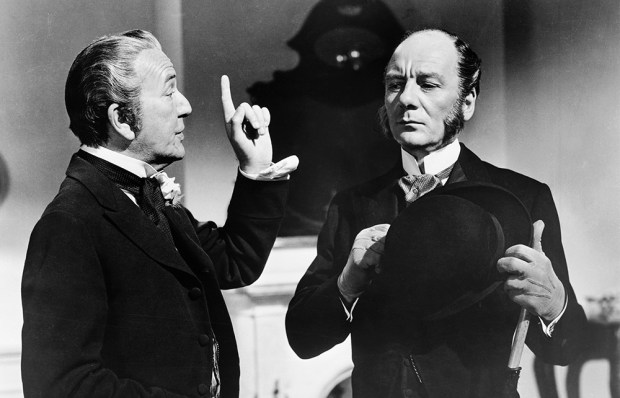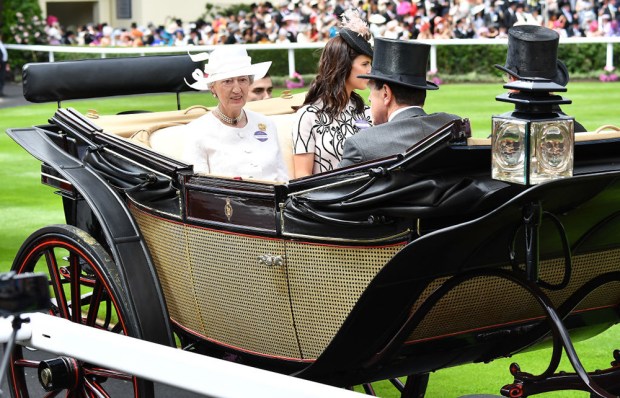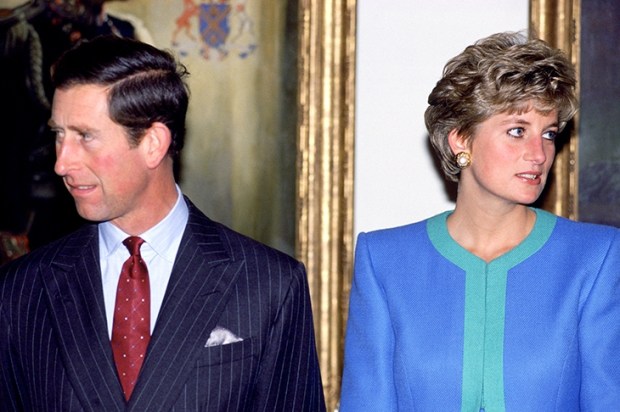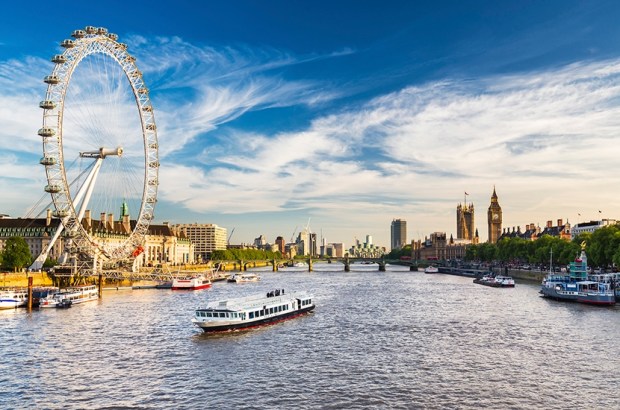Male Tory MPs molesting young men? Buttock-squeezing and groin-fumbling at a private members’ club? A middle-aged politician slipping into a dressing-gown ‘like a pound shop Harvey Weinstein, with his chest and belly hanging out’ to massage the neck of an Olympic rower?
Such are the allegations. ‘What,’ you may think, ‘is the world coming to? It was never like this in my day!’
How wrong you’d be. It was very much like this in the 20th century. There is in fact something tragically old-fashioned about the whole story. This is how it used to be for many when I was an MP, and there were dozens of other gay Tories at Westminster, and nothing was said, and everything was steeped in alcohol, and little was off-limits so long as it could be denied, and sex was quick, loveless and panicky. Just ask some of the Commons catering staff at the time.
Chris Pincher MP is not some herald of a dystopian future of sexual abandon and shameless abuse: instead the picture is of a sad fiftysomething throwback to the 1980s when Mr Pincher turned 20 and the Metropolitan Police haunted London pubs as agents provocateurs trying to catch gay men smiling too insistently in the lavatories so they could be charged with ‘importuning’. Or hanging around by night in parks and on commons where sex was fast and furtive and – almost literally – on the run. There was so little opportunity to make proper friendships; and an enduring homosexual relationship, if you dared be open, condemned you to disqualification from politics, from advancement in most professions and from much of the public sector and the business world.
In a part of your life you were a kind of outlaw. Recreation was to be found drinking in the places the other outlaws all knew too. In London, the Union pub, the Two Brewers… there was one little corner of the County Arms in Wandsworth where we used to meet. In Derby there was Curzons and the Green Lane Gallery… and, no, the Carlton Club in St James’s was definitely not on that list, but clubs, drunkenness and pouncing on people as much in hope as expectation was the order of the day, and on the whole people didn’t mind. They could always say no. There was even a gay magazine called Prowler.
Outlaws develop their own codes. ‘Outing’ other gay men was one of the taboos, but when it came to looking for sex, ‘anything goes’ pretty much summed it up. Some men did stupid, dangerous, brutal things, but more widely shared was the (true enough) maxim that if you proposition enough people, sooner or later someone will say yes. This was understood by both the propositioners and the propositioned. On today’s dating sites you ‘swipe’ left or right to decline or pursue. In those 20th-century days it had to be less anonymous and more physical.
Spare a thought for Christopher Pincher, a man I do not know. Born in Walsall, raised in Staffordshire, his adolescence just a few years too early to learn the self-respect that legal reforms and changing attitudes would soon engender, his youthful days as a young Tory arriving when there were plenty of other gay young Tories but honesty was political death. He just missed the future. His online personal profile is silent on relationships, he became trapped in a version of himself that didn’t tell the whole story, courage failed him, he got older, less attractive, drinking got the better of him, and I expect he succumbed to low self-esteem and a kind of desperation. Yes, of course, his alleged behaviour – if it has been limited to groping – was inexcusable but nobody died, nobody’s marriage was broken, nobody had to have an abortion and, as far as I know, he has thrown nobody to the wolves and broken no promises nor anyone else’s heart. His fate now – deserved, you may say, and I don’t dispute it – is to slink off and (presumably) out of politics. Punishment enough.
But I don’t think there’s anything remotely modern about this Tory story – except, perhaps, the breathtaking incompetence. There’s a new gay world out there, and Pincher isn’t part of it. Today’s young gays have nothing to hide and less crude (and far more efficient) ways of searching for relationships. Pincher belongs to a world that is dying. The new gay world drinks coffee in Soho; is unafraid to look for long-term partnership; is fairly tolerant of promiscuity but neuralgically intolerant of abuse; and as disapproving of sexual harassment as is any new man these days.
And this generation is deeply offended by sexual predation by politicians, and far less afraid to say so or make public complaint than their 20th-century equivalents. I remember my secretary telling me about the under-the-dining-table groping of constituents’ daughters for which an MP she had worked for was well known. We laughed. Many MPs and most journalists in those days would have laughed. I record that not with any pride or approval: I simply record it.
There’s been a figure bandied about that almost 10 per cent of today’s House of Commons is or has been under suspicion or investigation for inappropriate behaviour. Maybe. But the difference from 40 years ago is not that a similar (or greater) proportion wouldn’t have been misbehaving then, but that in those days very few people would have complained; and had any individual been repeatedly complained about, no PM would have dreamed of making him a senior whip.
As a parliamentary vice-president of the Conservative Group for Homosexual Equality in the early 1980s, I chaired a meeting where our guest speaker was the late Ian Harvey, who as an MP and minister had had a promising career until caught with a young guardsman in the bushes in St James’s Park, whereupon he resigned. Harvey had become a diminished figure, living alone. After the meeting he asked if any of us would like to come home with him. Nobody did. None of us felt insulted, just sad.
Got something to add? Join the discussion and comment below.
Get 10 issues for just $10
Subscribe to The Spectator Australia today for the next 10 magazine issues, plus full online access, for just $10.
You might disagree with half of it, but you’ll enjoy reading all of it. Try your first month for free, then just $2 a week for the remainder of your first year.















Comments
Don't miss out
Join the conversation with other Spectator Australia readers. Subscribe to leave a comment.
SUBSCRIBEAlready a subscriber? Log in